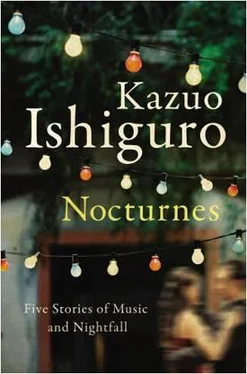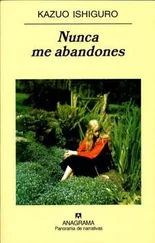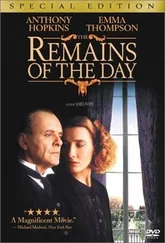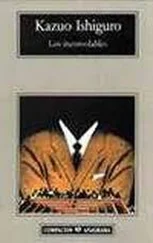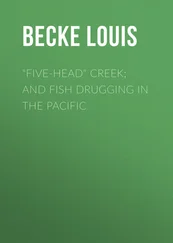“Yes. You should.”
“You’re a good friend, Raymond. What would we do without you?”
“If I’m a good friend, I’m glad. Because I’m not much good at anything else. In fact, I’m pretty useless, really.”
I felt a sharp tug on my shoulder.
“Don’t say that,” she whispered. “Don’t talk like that.” Then a moment later, she said again: “You’re such a good friend, Raymond.”
This was Sarah Vaughan’s 1954 version of “April in Paris,” with Clifford Brown on trumpet. So I knew it was a long track, at least eight minutes. I felt pleased about that, because I knew after the song ended, we wouldn’t dance any more, but go in and eat the casserole. And for all I knew, Emily would re-consider what I’d done to her diary, and decide this time it wasn’t such a trivial offence. What did I know? But for another few minutes at least, we were safe, and we kept dancing under the starlit sky.
I’D SPENT THE SPRING in London, and all in all, even if I hadn’t achieved everything I’d set out to, it had been an exciting interlude. But with the weeks slipping by and summer getting closer, the old restlessness had started to return. For one thing, I was getting vaguely paranoid about running into any more of my former university friends. Wandering around Camden Town, or going through CDs I couldn’t afford in West End megastores, I’d already had too many of them come up to me, asking how I was getting on since leaving the course to “seek fame and fortune.” It’s not that I was embarrassed to tell them what I’d been up to. It was just that-with a very few exceptions-none of them was capable of grasping what was or wasn’t, for me at this particular point, a “successful” few months.
As I’ve said, I hadn’t achieved every goal I’d set my sights on, but then those goals had always been more like long-term targets. And all those auditions, even the really dreary ones, had been an invaluable experience. In almost every case, I’d taken something away with me, something I’d learned about the scene in London, or else about the music business in general.
Some of these auditions had been pretty professional affairs. You’d find yourself in a warehouse, or a converted garage block, and there’d be a manager, or maybe the girlfriend of a band member, taking your name, asking you to wait, offering you tea, while the sounds of the band, stopping and starting, thundered out from the adjoining space. But the majority of auditions happened at a much more shambolic level. In fact, when you saw the way most bands went about things, it was no mystery why the whole scene in London was dying on its feet. Time and again, I’d walk past rows of anonymous suburban terraces on the city outskirts, carry my acoustic guitar up a staircase, and enter a stale-smelling flat with mattresses and sleeping bags all over the floor, and band members who mumbled and barely looked you in the eye. I’d sing and play while they stared emptily at me, till one of them might bring it to an end by saying something like: “Yeah, well. Thanks anyway, but it’s not quite our genre.”
I soon worked out that most of these guys were shy or plain awkward about the audition process, and that if I chatted to them about other things, they’d become a lot more relaxed. That’s when I’d pick up all kinds of useful info: where the interesting clubs were, or the names of other bands in need of a guitarist. Or sometimes it was just a tip about a new act to check out. As I say, I never came away empty-handed.
On the whole, people really liked my guitar-playing, and a lot of them said my vocals would come in handy for harmonies. But it quickly emerged there were two factors going against me. The first was that I didn’t have equipment. A lot of bands were wanting someone with electric guitar, amps, speakers, preferably transport, ready to slot right into their gigging schedule. I was on foot with a fairly crappy acoustic. So no matter how much they liked my rhythm work or my voice, they’d no choice but to turn me away. This was fair enough.
Much harder to accept was the other main obstacle-and I have to say, I was completely surprised by this one. There was actually a problem about me writing my own songs. I couldn’t believe it. There I’d be, in some dingy apartment, playing to a circle of blank faces, then at the end, after a silence that could go on for fifteen, thirty seconds, one of them would ask suspiciously: “So whose number was that?” And when I said it was one of my own, you’d see the shutters coming down. There’d be little shrugs, shakes of the head, sly smiles exchanged, then they’d be giving me their rejection patter.
The umpteenth time this happened, I got so exasperated, I said: “Look, I don’t get this. Are you wanting to be a covers band for ever? And even if that’s what you want to be, where do you think those songs come from in the first place? Yeah, that’s right. Someone writes them!”
But the guy I was talking to stared at me vacantly, then said: “No offence, mate. It’s just that there are so many wankers going around writing songs.”
The stupidity of this position, which seemed to extend right across the London scene, was key to persuading me there was something if not utterly rotten, then at least extremely shallow and inauthentic about what was going down here, right at the grass-roots level, and that this was undoubtedly a reflection of what was happening in the music industry all the way up the ladder.
It was this realisation, and the fact that as the summer came closer I was running out of floors to sleep on, that made me feel for all the fascination of London-my university days looked grey by comparison-it would be good to take a break from the city. So I called up my sister, Maggie, who runs a cafe with her husband up in the Malvern Hills, and that’s how it came to be decided I’d spend the summer with them.
MAGGIE’S FOUR YEARS OLDER and is always worrying about me, so I knew she’d be all for my coming up. In fact, I could tell she was glad to be getting the extra help. When I say her cafe is in the Malvern Hills, I don’t mean it’s in Great Malvern or down on the A road, but literally up there in the hills. It’s an old Victorian house standing by itself facing the west side, so when the weather’s nice, you can have your tea and cake out on the cafe terrace with a sweeping view over Herefordshire. Maggie and Geoff have to close the place in the winter, but in the summer it’s always busy, mainly with the locals-who park their cars in the West of England car park a hundred yards below and come panting up the path in sandals and floral dresses-or else the walking brigade with their maps and serious gear.
Maggie said she and Geoff couldn’t afford to pay me, which suited me just fine because it meant I couldn’t be expected to work too hard for them. All the same, since I was getting bed and board, the understanding seemed to be that I’d be a third member of staff. It was all a bit unclear, and at the start, Geoff, in particular, seemed torn between giving me a kick up the arse for not doing enough, and apologising for asking me to do anything at all, like I was a guest. But things soon settled down to a pattern. The work was easy enough-I was especially good at making sandwiches-and I sometimes had to keep reminding myself of my main objective in coming out to the country in the first place: that’s to say, I was going to write a brand-new batch of songs ready for my return to London in the autumn.
I’m naturally an early riser, but I quickly discovered that breakfast at the cafe was a nightmare, with customers wanting eggs done this way, toast like that, everything getting overcooked. So I made a point of never appearing until around eleven. While all the clatter was going on downstairs, I’d open the big bay window in my room, sit on the broad window sill and play my guitar looking out over miles and miles of countryside. There was a run of really clear mornings just after I arrived, and it was a glorious feeling, like I could see forever, and when I strummed my chords, they were ringing out across the whole nation. Only when I turned and stuck my head right out of the window would I get an aerial view of the cafe terrace below, and become aware of the people coming and going with their dogs and pushchairs.
Читать дальше
